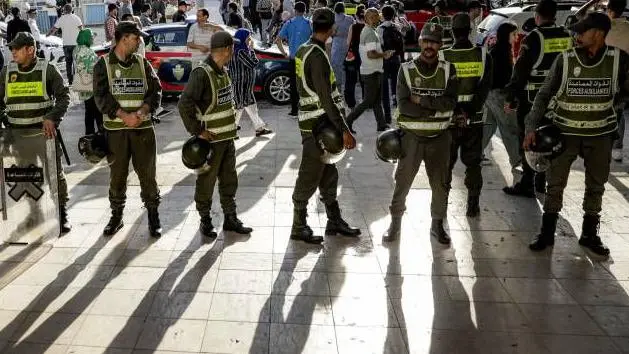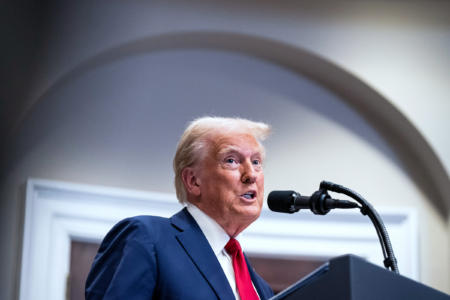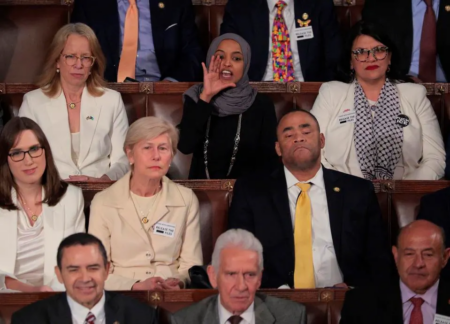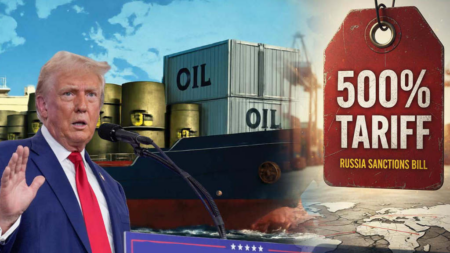In recent days, Moroccan security forces dispersed widespread demonstrations led mainly by youth demanding urgent reforms in health, education, and anti-corruption efforts.
Protests took place in several major cities, including Rabat, Casablanca, Oujda, and El Jadida.
Morocco Protests Reason
The protesters criticized the government’s heavy spending on preparations for the 2030 FIFA World Cup and stadium construction, instead of directing funds toward improving hospitals and schools.
Many carried banners reading “No to the World Cup, Health First” and “No Health, No Education—This is Morocco.”
The Rise of “Generation Z 212” Movement
A new youth-led movement called “Generation Z 212” emerged on Discord as a platform for discussion and mobilization.
The group has grown to more than 12,000 members, positioning itself as independent from political parties and focused on social causes.
Members demand reforms in public health and education services, criticizing the prioritization of sports infrastructure.
They argue that resources should strengthen hospitals, schools, and anti-corruption measures rather than be diverted into stadiums.
Generation Z refers to those born between 1997 and 2012—young Moroccans deeply influenced by the internet and social media, who are increasingly aware of political and social issues.
Morocco Protests: Arrests and Security Crackdowns
Human rights activists reported that Moroccan security forces arrested dozens of protesters in Rabat, Casablanca, and Agadir, particularly ahead of scheduled demonstrations.
Authorities reportedly prevented crowds from reaching Bab El Had Square in Rabat, a traditional protest site.
According to Hakim Sikouk, head of the Moroccan Association for Human Rights in Rabat, over 70 people were detained in recent rallies, with gradual releases after identity checks.
Sikouk criticized the government’s reliance on a “purely security-based approach,” stating that violence and mass arrests violate Morocco’s constitutional right to peaceful assembly.
Trade unions, including the Moroccan Labor Union, issued statements calling for the protection of public freedoms and respect for the right to peaceful protest.
They warned the government against escalating social unrest, urging immediate reforms to safeguard social stability.
Calls for Dialogue and Reform
Adil Chikito, president of the Moroccan League for Human Rights, stressed that the real issue lies in the decline of public health and education services.
He argued that cosmetic measures do not address systemic failures and urged the government to open direct dialogue with youth protesters instead of relying on repression.
Former Prime Minister Saad Eddine El Othmani also weighed in, describing Morocco protests as a warning signal.
He emphasized the need for the government to change its approach, adopt transparent communication, and implement effective measures to tackle rising unemployment and social discontent.
Read also: A New Sawab Center Paper Exposed Muslim Brotherhood Threat on the World
Morocco’s Socioeconomic Challenges
Morocco protests reflect growing frustration with Morocco’s socioeconomic indicators.
Official statistics place unemployment at 12.8%, with youth disproportionately affected.
Earlier in 2025, the government promised to raise the minimum wage to 4,000 dirhams (about $450), but critics argue that wage increases alone cannot address deep structural issues.
Health Sector Crisis
Morocco ranked 94th out of 99 countries in the 2025 Numbeo Healthcare Index, with only four doctors per 10,000 citizens—well below international standards.
Reports of maternal deaths, including eight pregnant women in Agadir, sparked outrage and highlighted the urgent need for reform.
Prime Minister Aziz Akhannouch defended his government’s performance, citing new laws and budget allocations.
However, critics argue that progress remains insufficient compared to the scale of the crisis.
Education Sector Struggles
Morocco also lags in education.
The World Economic Forum’s Global Competitiveness Report ranked the country 101st globally and 9th in the Arab world for education quality.
Meanwhile, the Global Knowledge Index placed Morocco 98th out of 141 countries.
These figures reinforce protesters’ calls for genuine reform rather than symbolic promises.
Outlook: A Call for Government Action
The youth-led demonstrations signal a growing social movement that cannot be ignored.
Generation Z 212 protesters, united by digital platforms and shared frustrations, are demanding accountability and meaningful reforms.
As Morocco prepares for 2030 FIFA World Cup, the government faces mounting pressure to balance international ambitions with domestic priorities.
Unless urgent steps are taken to address health, education, and corruption, social unrest could intensify—making dialogue and reform not just desirable, but essential.








